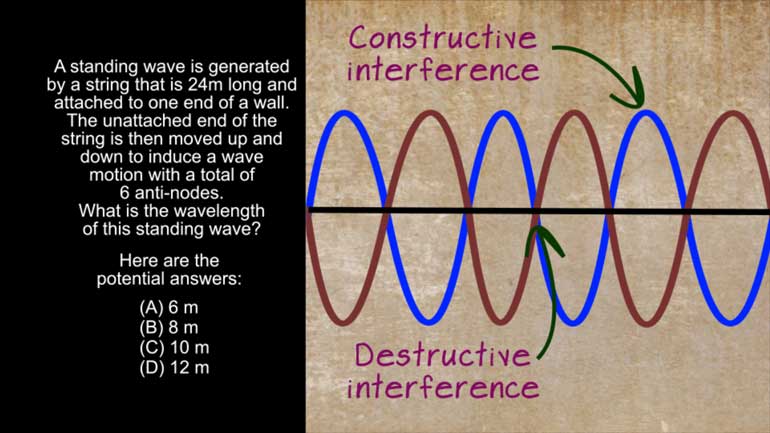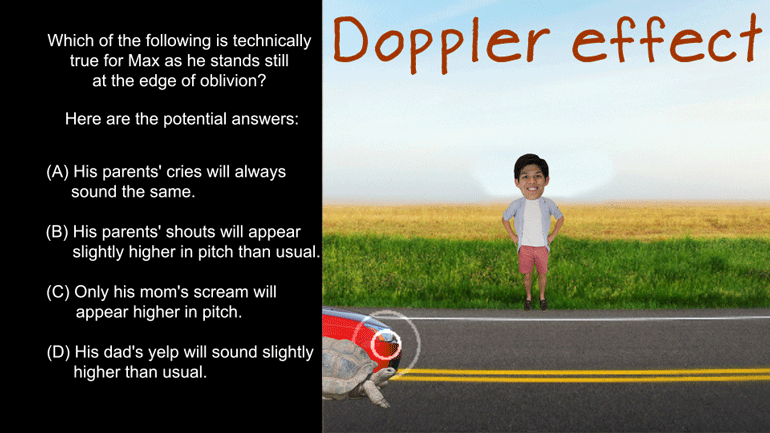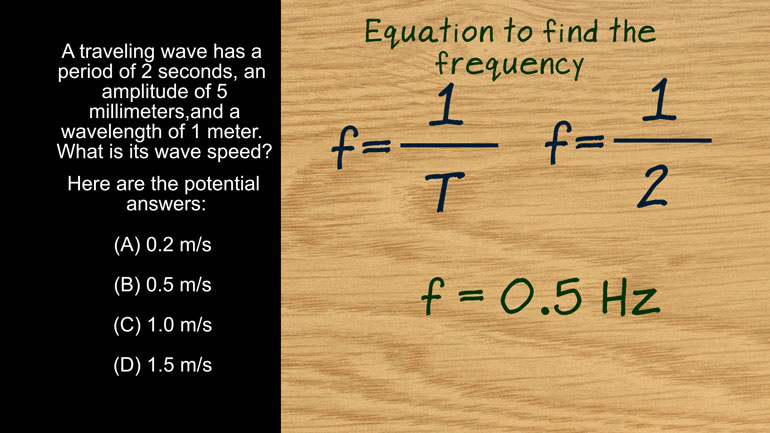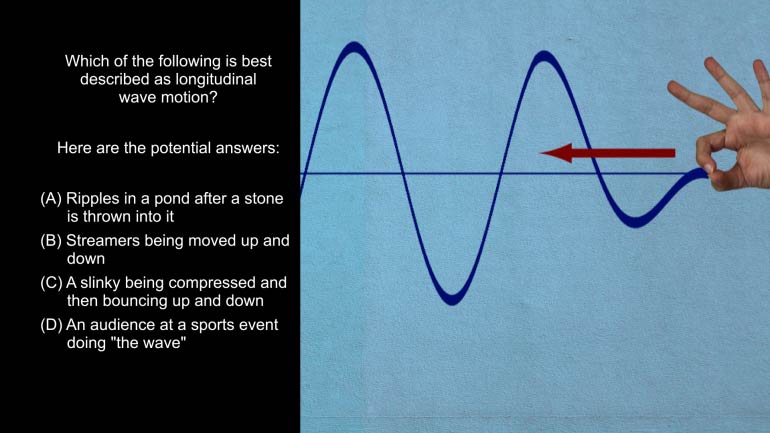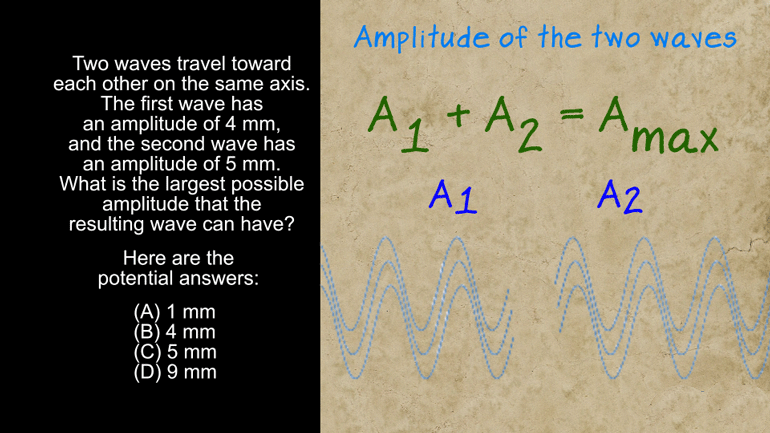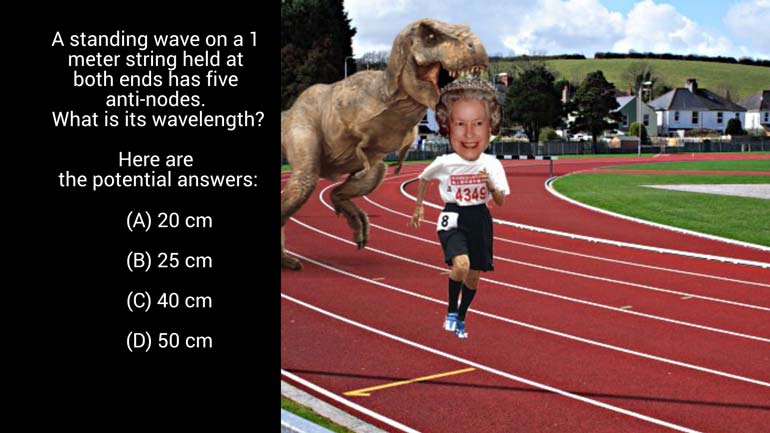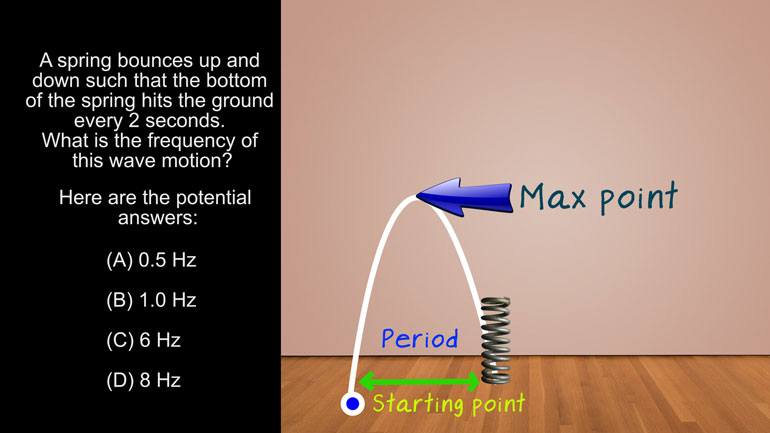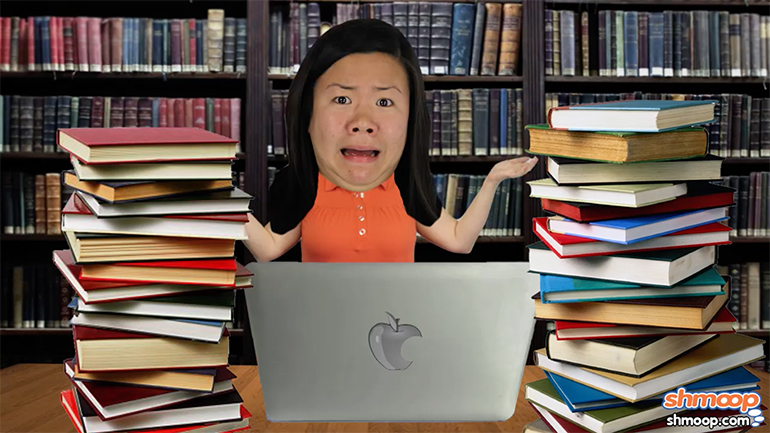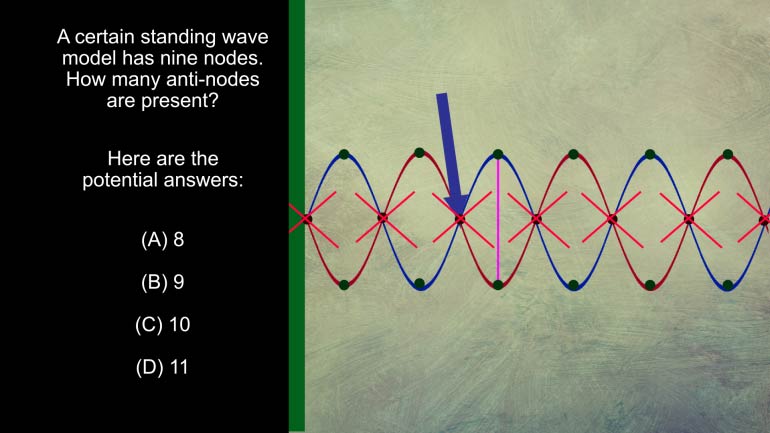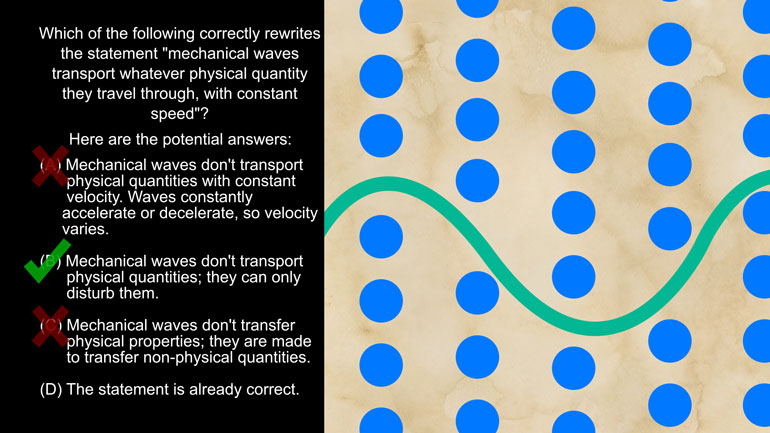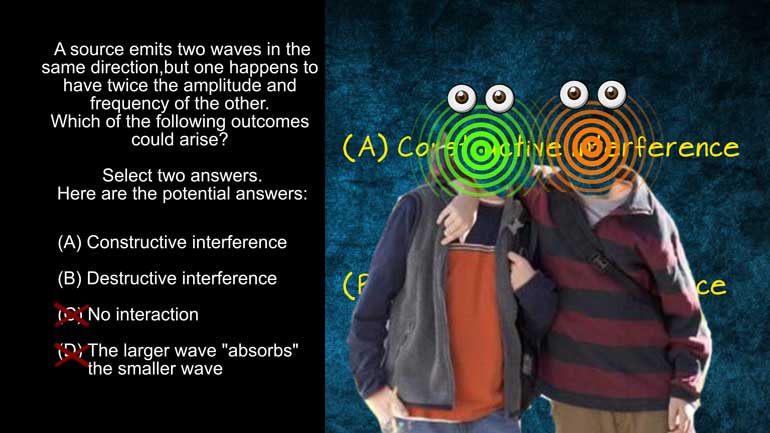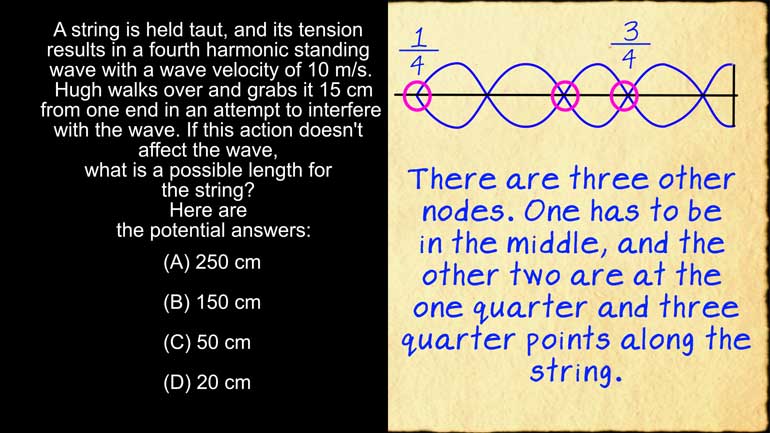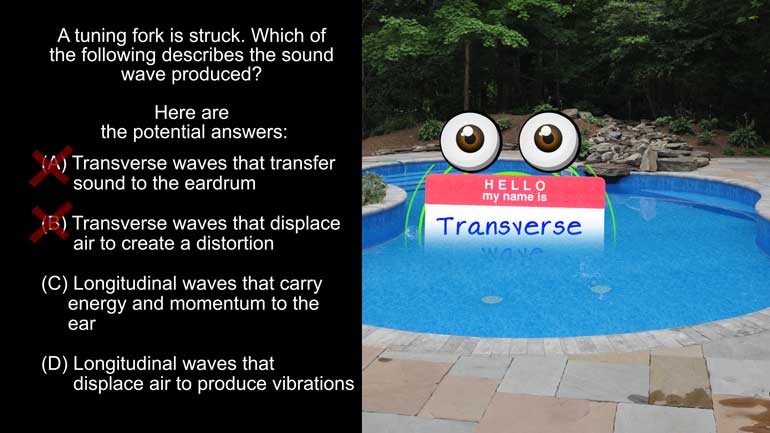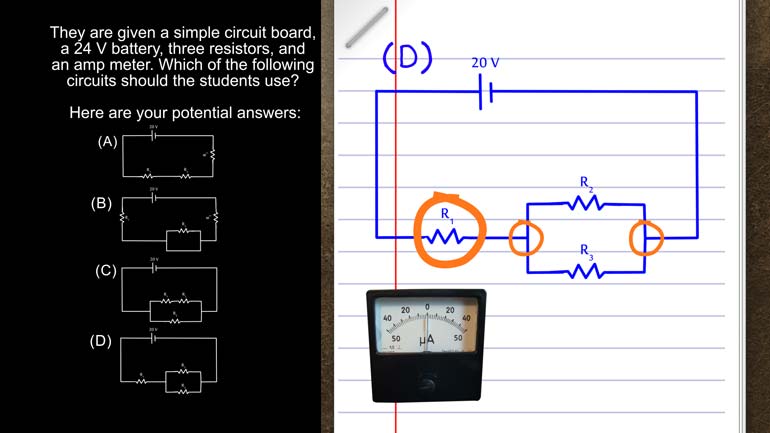ShmoopTube
Where Monty Python meets your 10th grade teacher.
Search Thousands of Shmoop Videos
Waves Videos 15 videos
AP Physics 1: 1.5 Waves. What can possibly occur when the two waves reach each other?
AP Physics 1: 2.2 Waves. What's the wavelength of this standing wave?
AP Physics 1: 1.4 Waves. Which of the following is technically true for Max as he stands at the edge of oblivion?
AP Physics 1: 1.4 Waves 181 Views
Share It!
Description:
AP Physics 1: 1.4 Waves. Which of the following is technically true for Max as he stands at the edge of oblivion?
Transcript
- 00:04
And here's your shmoop du jour brought to you by the Grand Canyon the
- 00:08
Grand Canyon was created by one River over a super long period of time and [Man looking out onto the Grand Canyon]
- 00:12
it's considered one of the wonders of the world but we try to dig one hole to
- 00:16
China when we're seven and well Dad freaks out.. All right, at the Grand [Girl digging a hole in the garden and Dad appears angry]
- 00:20
Canyon, Max leans over the railing of a beautiful but dangerous vista, his mother
Full Transcript
- 00:25
cries in distress while stepping back from the ledge and his father yelps [Max leaps over the ledge and Mother cries]
- 00:29
while lunging forward to grab him which of the following was technically true
- 00:33
for Max as he stands still at the edge of oblivion and here the potential answers
- 00:37
[Mumbling] All right well
- 00:42
yeah the Grand Canyon might not be the best place to try and get a closer look [Max jumps down the Grand Canyon]
- 00:45
at something one mistake and we could see billions of years of history fly
- 00:50
past but this isn't AP Geology, so let's look at the physics of the Doppler
- 00:56
effect so the Doppler effect occurs when a wave source is in motion relative to [Boy at the side of the road staring at a car and tortoise]
- 01:02
an observer if the wave source is approaching the observer the wave
- 01:06
frequency relative to the observer increases it goes like that if the wave
- 01:11
source is receding from the observer the frequency will decrease that sounds all
- 01:16
technical and abstract so let's think of it in real life. Think about being [Boy reading a book]
- 01:20
stopped at a train crossing as the train approaches the pitch of its horn gets
- 01:24
higher that's because the sound waves are moving at a higher frequency as the [Train travelling past a parked car]
- 01:28
train approaches after the train goes by the horn has a lower pitch because the
- 01:33
waves have a lower frequency as it moves away it was like that we can think of it
- 01:38
in another way too - Let's say we're playing with our friend Wild Bill - Wild
- 01:42
Bill has invented a new toy; a ping pong ball machine gun yeah like that the gun [Wild Bill with a ping pong ball machine gun]
- 01:48
shoots ping pong balls at a rate of one per second... If he stands
- 01:52
still and shoots ping pong balls at us will get hit once every second he's a [Wild Bill shooting a ping pong ball at a girl]
- 01:56
good shot, but if he comes charging at us we'll get hit more frequently because the
- 02:02
distance between us and the source of the ping pong ball will be decreasing so [Wild Bill moves closer to girl and shoots ping pong balls]
- 02:06
the balls will have less time in the air for every shot and so it makes sense
- 02:10
that when we finally snap and yell at Wild Bill [Girl shouts at Wild Bill and he runs away]
- 02:13
making him run away from us we'll get hit less frequently.. Wild Bill's kind of a
- 02:18
jerk why are we friends with this guy anyway anyway let's get back the Grand
- 02:22
Canyon. Since Max's Dad is moving toward him the frequency of his voice will increase [Max's Dad runs towards Max and voice frequency increases]
- 02:26
making the pitch higher so the correct answer is D. Next time we're at the Grand
- 02:30
Canyon we'll keep our distance from the edge we're not big on heights [Boy scared while standing near the rails of Grand Canyon]
Related Videos
AP Physics 1: 1.4 Changes and Conservation Laws. Find the current across R2.
AP Physics 1: 2.4 Changes and Conservation Laws. Which of the following circuits should the students use?
AP Physics 1: 1.5 Waves. What can possibly occur when the two waves reach each other?
AP Physics 1: 2.2 Waves. What's the wavelength of this standing wave?

